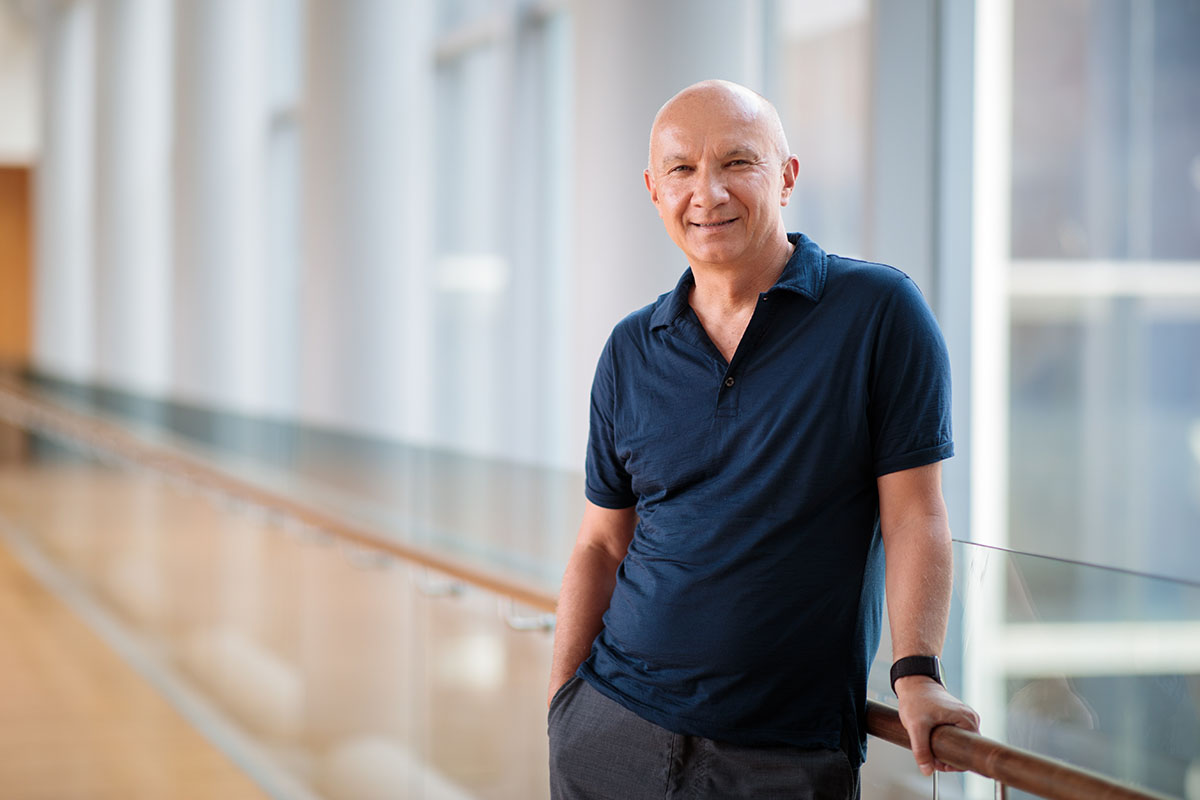Centre for Quantum Technologies to welcome new Director
The Centre for Quantum Technologies (CQT) at the National University of Singapore is pleased to announce the appointment of José Ignacio Latorre as its new Director. José Ignacio will assume the position on 27 July 2020, taking over from the Centre’s founding Director Artur Ekert.
CQT was established as Singapore’s first research centre of excellence in 2007 by the National Research Foundation (NRF) and Ministry of Education. Nurtured by Artur to grow from a few research groups in theoretical physics and quantum optics into a Centre of some 180 staff and students, CQT today enjoys an international reputation for its interdisciplinary research in quantum technologies.
Since the Centre’s inception, its researchers have published over 2000 scientific papers, and celebrated achievements from the creation of ultracold quantum matter to the launch of quantum satellites. They are working with partners including Singtel, the Infocomm Media Development Authority and SGInnovate towards commercial deployment of quantum technologies, and some alumni have moved on to found local startups.
José Ignacio is poised to lead the Centre into its next phase of development, through a time of fast growth in the field. As well as taking up the position of CQT Director, he is appointed Provost’s Chair Professor in the NUS Department of Physics.
José Ignacio is a familiar member of Singapore’s quantum community, having been a visiting professor at CQT since 2013. He joins NUS from the University of Barcelona, where he is a full professor of theoretical physics. He has been heading a research group at the Barcelona Supercomputing Center to build the first quantum processor in Spain. He is also the founder and director coordinator of the Centro de Ciencias de Benasque Pedro Pascual, a Spanish scientific facility in the Pyrenees mountains well known for its conferences.
José Ignacio says, “I am honoured to be appointed as the next director of CQT. Singapore had a vision of creating a research centre of excellence in quantum technologies. Artur’s leadership has turned that into solid reality. I’m excited to work with the CQT team in the passionate and uncompromised search for knowledge and its applications, to make CQT and Singapore play a pivotal role in the new quantum era.”
A change of leadership
The appointment was made through an international search after Artur expressed a wish to hand over the position. Artur is known as one of the co-inventors of quantum cryptography and for his foundational research in quantum information. He was first attracted to NUS by the spirit of the quantum research community in Singapore, and he says he will continue to be involved in research here.
He shared, “As we ease into a new decade, I am happy to take a back seat as I am sure José Ignacio will build on the strengths of the Centre for Quantum Technologies to take it to even greater heights. I wish him all the best in this endeavour.”
 Artur Ekert has served as CQT’s Director since the Centre was founded in 2007. A pioneer of quantum cryptography, he was also a Lee Kong Chian Centennial Professor at NUS. Image credit: CQT, NUS
Artur Ekert has served as CQT’s Director since the Centre was founded in 2007. A pioneer of quantum cryptography, he was also a Lee Kong Chian Centennial Professor at NUS. Image credit: CQT, NUS
José Ignacio brings with him commercial experience as a consultant for businesses on quantum problems and artificial intelligence and the creator of three start-ups. He is also passionate about connecting research with society. He has learned about CQT from the inside over the past six years and will continue to engage with the Centre’s community and stakeholders to define goals for his period as Director.
The quantum future
Quantum science and technology promises to deliver more secure communication, faster computing and more precise sensors. That potential is drawing increasing government funding and corporate investment around the globe. At the same time, there remain unanswered questions about the foundations of quantum physics that excite scientists’ curiosity.
Research efforts are backed by initiatives in other countries including the European Commission’s EUR 1 billion Quantum Flagship, launched in 2018, and the United States US $1.2 billion National Quantum Initiative. Meanwhile, tech companies including brand names like Google, Microsoft and IBM are racing startups to build large-scale quantum computers and to develop quantum software. China is connecting cities with networks for quantum communication.
In Singapore, quantum research has strong support. That includes not only core funding for the Centre for Quantum Technologies but also competitive grants, including the dedicated Quantum Engineering Programme (QEP) established by NRF in 2018 towards the translation of quantum science and technology. At CQT, research is led by 24 Principal Investigators.

